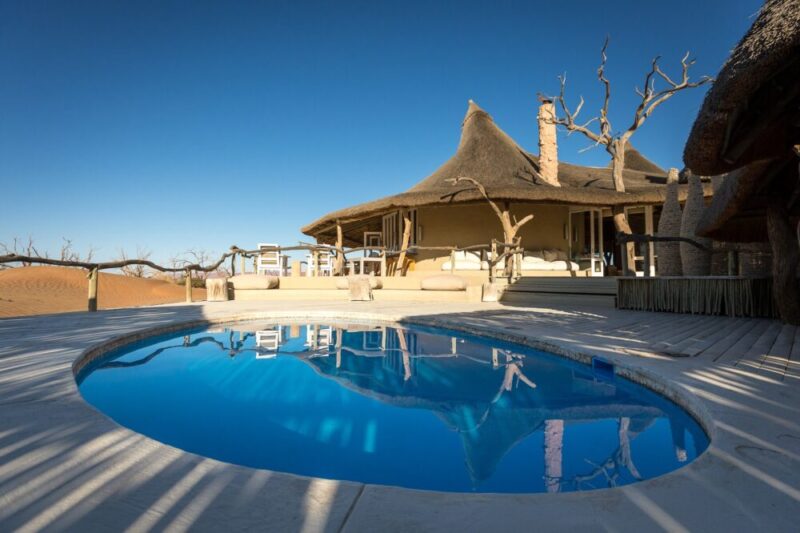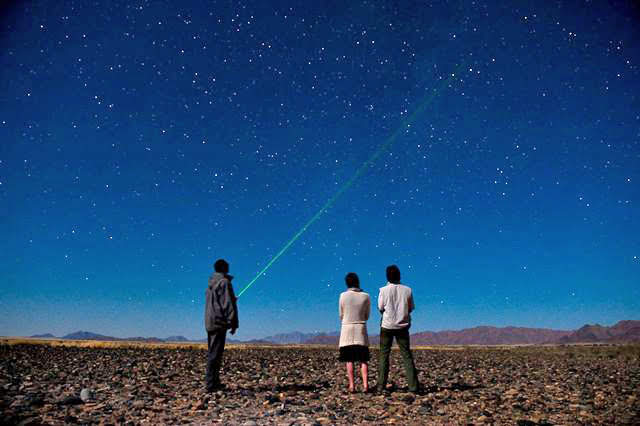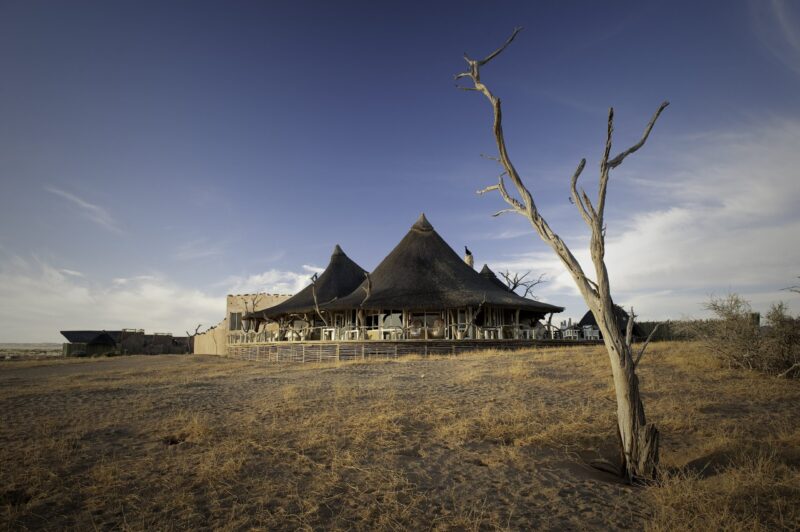| The current rebuild of Little Kulala, Wilderness Safaris’ acclaimed desert retreat in Namibia’s Sossusvlei area, celebrates the camp’s extraordinary commitment to the restoration of the pristine Kulala Wilderness Reserve, and the biodiversity conservation of a range of fascinating arid-adapted and specialised wildlife. The rejuvenated camp will also comprise the lightest footprint possible, powered by an all-new 100% solar energy system.
“This significant investment into renewable energy will greatly reduce our carbon emissions, ensuring that the camp continues to operate with minimal impact on the Namib Desert. This was a natural step for us to ensure that our responsible, low-impact ecotourism model continues to aid the preservation of this sensitive habitat, while at the same time positively impacting local communities through employment and other income-generating activities”, notes Alexandra Margull, Wilderness Safaris Namibia MD. The new solar-powered system consists of the latest L-ion battery technology and a 600-panel solar array. The entire camp will also use evacuated tube solar geysers to heat water, energy-efficient lights and appliances, and inverter air-conditioning units, which consume less power than conventional equivalents. Furthermore, a big focus of the rebuild is to ensure efficient operation and design, with careful thought given to the wildlife that occurs in the area. The new low walkways are designed to allow free movement of smaller reptiles and invertebrates, and the waterholes on the Reserve are pumped using solar, providing a vital source of water to wildlife, with minimal disturbance.
With the scarcity of water in the desert, every effort is made to conserve this precious resource by installing water efficient devices in camp for both guests and staff. Water usage is carefully managed and monitored on a daily basis. In addition, Little Kulala will use a Natura three-stage advanced reverse osmosis filtration system to provide guests with chilled, high-quality still and sparkling drinking water. This filter will significantly reduce bottled water usage, as well as the indirect impacts associated with the production of conventional bottled water. It also forms part of Wilderness Safaris’ waste management programme that aims to completely eliminate the use of plastic in its camps, encouraging local and farm-to-table products as well as more efficient packaging in the kitchens. In extremely remote camps such as Little Kulala, this also ensures the reduction of fossil fuels by decreasing the frequency of food transportation to and from the camp.
“Minimising our footprint and maximising our conservation impact forms the cornerstone of our sustainability ethos, and we are proud of our long history and ongoing efforts at Little Kulala to preserve the biodiversity of the area. Back in 1996, when Wilderness Safaris first started operating here, the locale had previously been used for subsistence goat farming, and precious little indigenous wildlife remained. We undertook a comprehensive and careful rehabilitation programme to restore the degraded land to its original habitat, removing fences to allow for the natural movement of wildlife and ensuring that endemic fauna and flora could thrive in the area once again. Today, the reserve encompasses 27 000 hectares of pristine wilderness, home to a range of fascinating arid-adapted and specialised wildlife”, says Alexandra. The Kulala Wilderness Reserve is situated in the Pro-Namib and adjoins the Namib Sand Sea – a UNESCO World Heritage Site. Found on the immediate eastern border of the Namib-Naukluft Park, the reserve is part of the Greater Sossusvlei-Namib Landscape, a collaborative conservation initiative, which today encompasses freehold land predominantly used for low-impact tourism. Little Kulala is located on the acacia-lined, ephemeral Aub riverbed, while the Tsauchab River also traverses the reserve, thus also aiding in the protection of these two key watercourses. “We are looking forward to welcoming our guests back to Little Kulala , and to continue offering unique life-changing journeys”, concludes Alexandra. |


